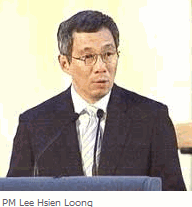|
|
|
|
|
|
|
News & Views item - January 2006 |
![]() "HIGHER EDUCATION is to Massachusetts What the Citrus Industry is to Florida."
(January 23, 2006)
"HIGHER EDUCATION is to Massachusetts What the Citrus Industry is to Florida."
(January 23, 2006)
Richard Doherty who is president of the Association of Independent Colleges & Universities in Massachusetts has that attention getting opening to his opinion piece in last Saturday's edition of the Boston Globe.
He concludes the paragraph with, "It is simultaneously our greatest natural resource and one of our leading industries. Maintaining and strengthening the public and private higher-education institutions and their students is critical to maintaining the state's economic competitiveness."
Doherty maintains:
The independent sector... graduates a disproportionate share of students majoring in math, science, and other disciplines critically important to the Massachusetts economy. These graduates are well prepared to move into key industries, such as healthcare, biotechnology, nanotechnology, and telecommunications -- industries the independent higher-education sector has helped spawn through research and development and entrepreneurial activity.
The bottom line: The independent sector simultaneously attracts billions of research dollars to the state, invests billions in payroll, construction, and other purchases, and annually saves billions of dollars in public expenditures. Massachusetts, unlike many competitor states, has had the luxury of not needing to allocate double-digit percentages of its annual state budget to higher education, precisely because of the breadth, depth, and quality of our higher-education sector. That is not to say, however, that we are spending adequately on higher education.
He points out, "Per-student spending on higher education in Massachusetts has been among the lowest in the nation. Massachusetts invests less than 4 percent of its state budget on higher education... This decline in state funding has forced students to take out more loans or not enroll at all. This can only result in a brain drain and weakening of the Massachusetts economy."
And he continues, "Last year the independent colleges and universities in Massachusetts [e.g. Harvard, MIT, Brandeis, Northeastern, Amherst, Mt Holyoke] contributed US$275 million from their own institutional resources to fund financial aid for Massachusetts residents."
Doherty then concludes by returning to his opening gambit:
Just as Florida invests millions of dollars each year to promote its signature citrus industry, so, too, must we invest in our signature industry -- higher education and the students we educate to become productive citizens and lifelong contributors to our economy.
And he also concedes that progress
seems to be beginning, "This year's commitment to our public higher-education
system is an important step in the right direction... The governor and the
Legislature should move ahead with the Board of Higher Education's
cost-effective proposal released this month to increase the Commonwealth's
investment in higher education, including a $20 million increase in student
financial aid for residents seeking to attend the college of their choice in
Massachusetts."
Meanwhile closer to our shores Singapore's Prime Minister Lee Hsien Loong says he expects over the next 5 years Singapore's higher education landscape will undergo a dramatic transformation that will provide students more variety, and if fact there will be incentives to some to partner polytechnics to offer degrees in applied and creative disciplines to give polytechnic graduates more options.
In his remarks last Friday at the
official opening of the Singapore Management University's new city campus Mr Lee
referred to new institutions like UniSIM and the University of New South Wales
as also making their mark in the tertiary sector, "Taken together, these changes
will dramatically transform our higher education landscape. We will create a
whole new thriving industry of tertiary education, catering to both Singaporeans
and foreigners alike. This will keep Singapore at the forefront of research,
promote a cross-fertilisation of ideas and help to nurture creativity and
diversity in our small but vibrant cosmopolitan city."
Whoever inherits the disarray and
turmoil created by the now departing Minister for Education, Science and
Training, Brendan Nelson, will have a job to do to right the listing ship by, in
the first instance, trying to persuade Prime Minister John Howard that massive
rebuilding of Australia's higher education sector is required if the nation is
to maintain its competitiveness among its cohort, not only in the matter of
attracting overseas students, but in training it own in research, learning and
developmental expertise in critical areas to turn around the nation's current
account deficit.
![]()